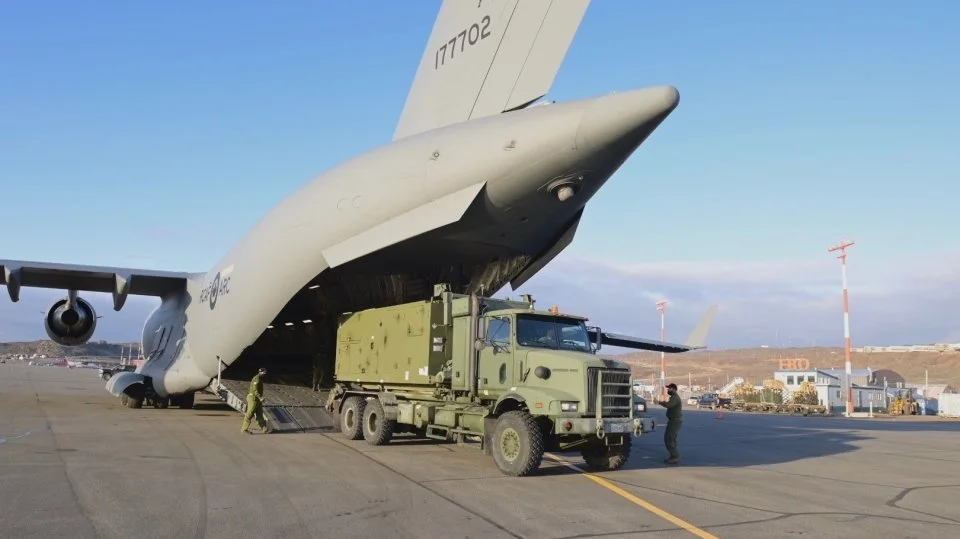The deadline for military members and their families to apply for compensation after drinking contaminated water is approaching fast — and federal opposition parties are urging Ottawa not to block an application for an extension. Some current and former members and their families who lived in CFB Valcartier's married quarters from 1995 to 2000 could be eligible for thousands of dollars in compensation — if they apply before the Jan.15 deadline.
Military resumes purifying river water in Iqaluit as city searches for solution to plastic bottle waste
Two weeks after a winter storm in Iqaluit took down the tent that housed the Canadian Armed Forces' water purification system, their efforts to provide the city with clean drinking water have resumed. On Monday, the City of Iqaluit announced residents can get purified river water from the military's purification system at Abe Okpik Hall or Elder's Qammaq, but they have to bring their own buckets or jugs — the water depots are no longer providing bottled water.
B.C. moves to recovery management phase after floods; most military leaving province
British Columbia is shifting into repair and recovery mode following devastating floods and landslides caused by record rains that crippled transportation links, deluged agricultural operations and forced the evacuations of thousands of people, says the province's public safety minister. Mike Farnworth said Monday the cleanup and repair work ahead in southern B.C. is massive, but after three weeks of all-out efforts by volunteers, Canadian Forces soldiers and emergency officials to secure dikes, rescue people and animals and salvage properties, the rebuilding job must start.
Bad weather hampers military efforts to purify Iqaluit river water
Seven weeks into Iqaluit's drinking water crisis, the Canadian Armed Forces is finalizing plans to move its water purification efforts in Iqaluit to an existing military facility, as the city's water remains unsafe to drink. The original plan, which involved using a reverse osmosis water purifier at the Sylvia Grinnell River was waylaid Nov. 22 by a winter storm that snapped the frame of a military tent that sheltered clean water bladders from the reverse osmosis system.
Military suspends Iqaluit water operation after wind damages tent
The Canadian military has suspended its operation to pump potable water from the Sylvia Grinnell River during the city’s ongoing water emergency, spokesperson Maj. Susan Magill says. The call was made on Tuesday, after wind gusts of up to 100 km/h on Monday snapped the frame of a tent that was covering the tanks used for holding purified water along the river. “Right now, everything is at a standstill,” Magill said Wednesday. The city and Government of Nunavut ordered residents not to drink the city’s water on Oct. 12, after people complained of a fuel-like smell coming from their taps. It was later confirmed diesel fuel had contaminated the city’s water supply.
Military arrives in Iqaluit to set up reverse osmosis water purification
The Canadian Armed Forces says its members have arrived in Nunavut's capital to assist with the city's ongoing water emergency. Prime Minister Justin Trudeau tweeted Friday that he had spoken with Nunavut Premier Joe Savikataaq and the military would be deployed to Iqaluit to co-ordinate and deliver clean drinking water. Late Saturday, the military tweeted that there are over 20 Canadian Armed Forces members in Iqaluit setting up deployable equipment for reverse osmosis water purification.
'The 500-year flood': Dozens forced from homes in Whitewater Region
Dozens of people in the Township of Whitewater Region have been forced from their homes as water levels on the Ottawa River peaked this weekend. The Renfrew County, Ont., township is about 140 kilometres northwest of downtown Ottawa, and includes nearly 90 kilometres of shoreline. About 100 homes have been affected by flooding, Mayor Michael Moore said Sunday.








